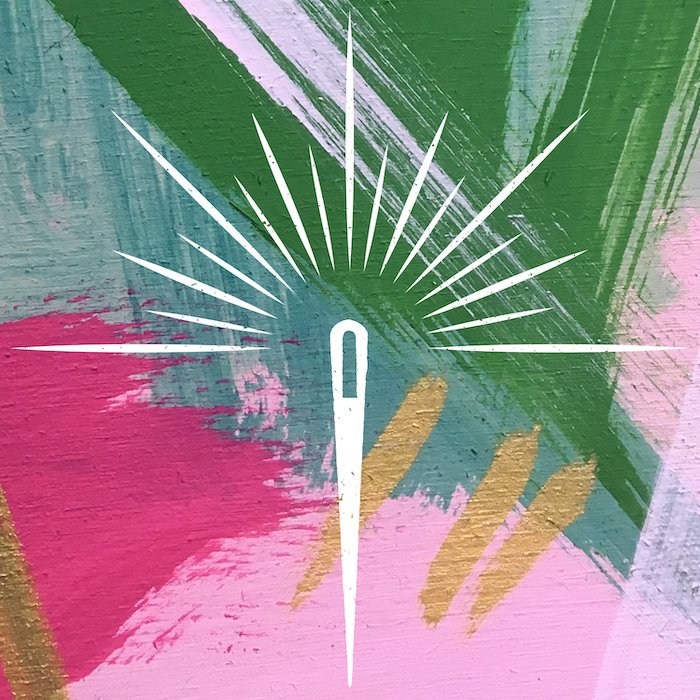Why Would Anyone Make Linen Jeans?
Fashion on Earth showcased some of the leading textile makers and artists in the UK that utilise processes which prioritise planetary health and prosperity. One such artist and maker, Brigitte Kaltenbacher (AKA BeeKayMakes) shares the story behind the incredible Linen Jeans as we put a spotlight on this amazing project.
-
Brigitte:
“Jeans are one of the most fashion iconic staples in wardrobes worldwide. 70 million pairs were sold annually in the UK and over 4.5 billion pairs worldwide last year. However, conventional jeans come with a dire environmental cost; their production involves toxic dyes, excessive water use, and harmful chemicals.
What if we could change that?
-
Meet our linen jeans—a garment that’s locally grown, processed, spun, woven and sewn within 50 miles of the project centre. The journey of these jeans, from garden to garment, shows what’s possible when communities come together to rethink fashion.
Inspired by the Fibreshed ethos of local production, and Rebecca Burgess' project "Grow Your Jeans", a local group of flax enthusiasts set out to do just that: to create jeans with flax, a native fibre plant with a long textile history in the UK.
Lets Grow Flax, A Communal Grass Root Initiative
In 2023, thirty locals formed ‘Lets Grow Flax’. Each member of the group grew a square meter of flax in their gardens, allotments, and even flowerpots within 50 miles of Farnham, Surrey.
The project was initiated by Brigitte of @Beekaymakes, a sustainable weaver and long-standing flax fan. With the support of fellow artisan and natural dyer Ginny Farquhar, Brigitte guided the group through the entire flax cycle—from planting and harvesting flax to processing and spinning flax fibre into linen yarn. All growers kept a third of their crop to learn traditional textiles skills, the rest was donated to the jeans project.
In 2024, Brigitte collaborated with the Fantasy Fibre Mill, a pioneering micro-mill using open-source machinery to enable small-scale, bio-regional production of natural fibre yarn. Their innovate work offers artisans and (flax growing) communities a way into local textile production.
Linen Jeans – The Making Of
The mill spun part of the flax fibre into linen yarn for the warp. Brigitte hand-spun the weft yarn and dyed it with oak galls and iron water. This powerful combination of natural dye materials creates a rich black that has been used and lasts for centuries. Both, the book of Kells (~800AD) and the Magna Carta (1215 AD) were written with oak gall ink and are still clear and dark today!
The yarn was woven into a traditional denim cloth using the typical twill construction, and sewn into jeans by Nick Evans of @FirstPrincipals, a passionate linen and denim lover and sustainable fashion activist. Every detail of the jeans was carefully considered to align with the project’s sustainable ethos:
Genderless cut and relaxed-fitting: A versatile style to accommodates various body types and sizes.
Fully biodegradable: Locally made oak wood buttons and additional darts replaced metal zippers and rivets.
Eco-friendly sewing: the GOTS certified ‘Tencel’ thread was naturally dyed with onion skins
Efficient patterns: Cutting waste was minimized with a smart lay pattern.
More Than Just Jeans
The significance of these jeans goes beyond the details of sustainable production; they represent powerful connections on multiple levels.
They reconnect us to a rich textile history of UK linen production, a practice that thrived for centuries, as well as a sustainable future: flax is a low-impact crop that requires no irrigation, minimal fertilisers, and regenerates our rapidly disappearing precious soil. Its deep roots balance our soil, improve its structure, and sequester carbon.
Besides collaborating with the Fantasy Fibre Mill, our group connected to maker-spaces and local wood working groups to have tools made; friends and families helped or started flax growing themselves, and skills and resources were pooled. We benefited from the professional flax expertise by ‘Flaxland UK’, research support by ‘Denim Research’ and expert flax spinning tuition by WSD Guild tutor ‘MandaCrafts’.
Public engagement also was a key element of the project. Demonstrations at venues like Farnham Museum and the Weald & Downland Living Museum (home of The Repair Shop) allowed the group to share their skills and the progress of the jeans. And we were beyond proud to exhibit our jeans at the ‘Fashion of Earth’ event in Bristol, organised by ‘Sustainable Fashion Week’.
Our Vision:
Our linen denim jeans go beyond creating a sustainable garment - they embody a radically new way to approach fashion and clothing production. Inspired by Fibreshed’s ‘soil to soil’ ethos, they demonstrate the potential for a circular, regenerative textile system that uses local materials, local labour, and local networks. These jeans are an example of an environmentally conscious, bio-regional and regenerative textile practice, and the power of communities to drive a positive textile future.”
You can learn more about Brigitte’s work here.
Check out Brigitte’s shop & upcoming events here.
Acknowledgements:
Brigitte’s development of her creative practice as a community textile artist was supported using public funding by Arts Council England. #DYCP #ACE





